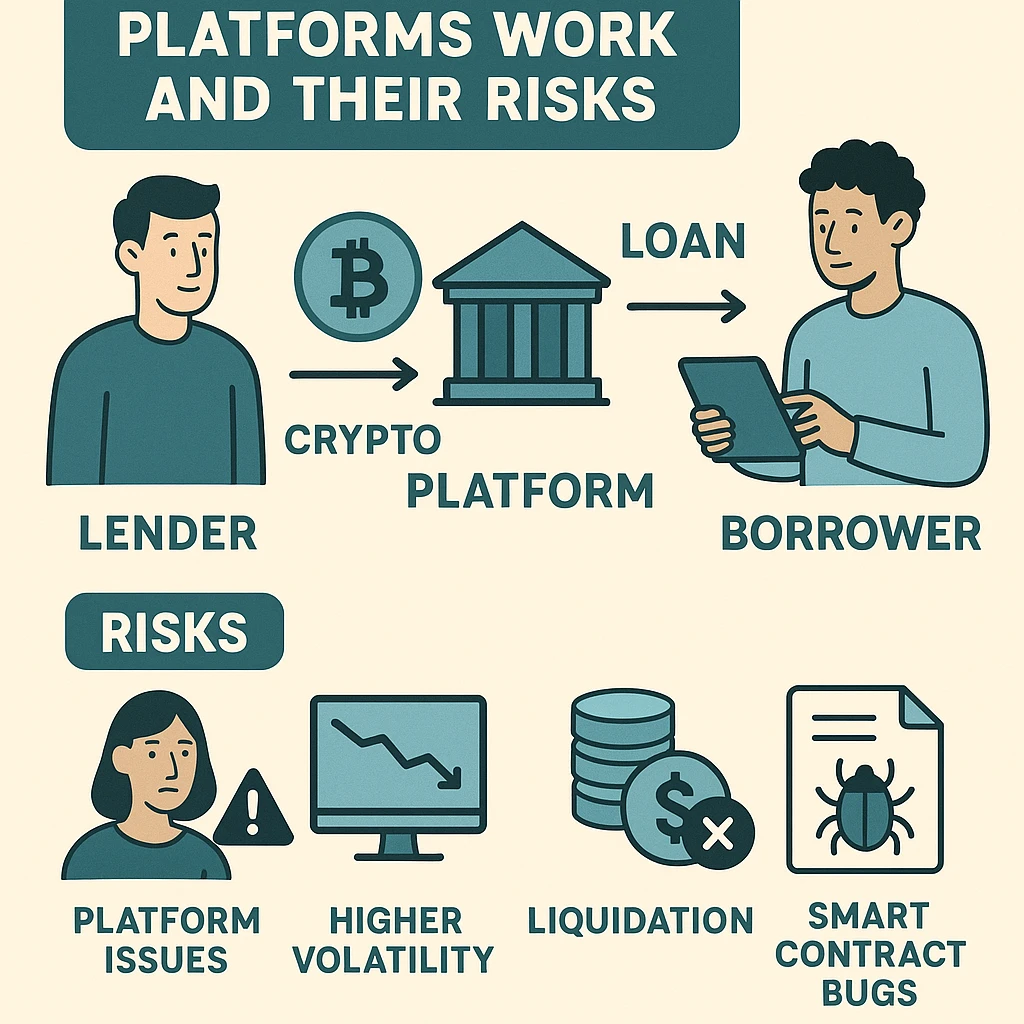Innovation, decentralization, and financial independence are what give cryptocurrencies their worth and potential. However, the Securities and Exchange Commission (SEC) is largely responsible for determining the direction of cryptocurrency in the United States. Its conflicting stances, which alternate between strict enforcement and lucid regulations, have influenced investor confidence, innovation, and market behavior. This blog examines how the SEC's position—from the priorities of its leadership to enforcement tactics and legislative engagement—could have a significant impact on the crypto industry's future.
1. The SEC’s Core Mission & Crypto Focus
Established in 1934 in response to the 1929 stock market crash, the SEC’s mission remains to protect investors, maintain fair, orderly markets, and facilitate capital formation businessinsider.in+1pymnts.com+1barrons.com+2investopedia.com+2forbes.com+2. However, crypto presents unique challenges: decentralized tokens don’t map neatly onto traditional securities frameworks. Under Chair Gary Gensler, the SEC ramped up scrutiny using the Howey Test—a 1946 legal standard—to label most tokens as securities if profit expectations depend on a central team's efforts en.wikipedia.org+1coindesk.com+1. His approach included over 100 enforcement actions targeting exchanges, lending platforms, and token issuers across Web3 and DeFi , catching companies like Coinbase, Binance, Ripple, and Kraken in its crosshairs en.wikipedia.org.
While Gensler staunchly defended the approach, emphasizing investor protection and market integrity crypto.news+15businessinsider.in+15pymnts.com+15, crypto firms warned it deterred U.S.-based innovation. Coinbase’s CEO called the SEC hostile and “regulation by enforcement” reddit.com+1globalrelay.com+1, and some experts warned it risked driving projects abroad apnews.com+1surmount.ai+1.
2. Enforcement Under Gensler: Clearing the Path with Cease-and-Desist
From 2021 to 2024, the SEC took sweeping enforcement actions against major players:
-
Coinbase was sued over staking-as-a-service and operating without registration reddit.com+1pymnts.com+1axios.com+3crypto.news+3en.wikipedia.org+3.
-
Binance faced charges for mishandling user funds and regulatory evasion axios.com+15crypto.news+15surmount.ai+15.
-
Ripple was sued for selling XRP as an unregistered security; recent court wins signaled softer enforcement fortune.com+15bsc.news+15time.com+15.
-
Kraken settled an SEC suit over its lending product by paying a $30 million penalty en.wikipedia.org.
-
OpenSea received a Wells Notice; critics viewed it as mission creep fortune.com+5forbes.com+5en.wikipedia.org+5.
These actions sent shockwaves through the industry. In 2024, enforcement cases dropped by 30%, but fines remained high—totalling around $5 billion reddit.com. While this reduced case volume gave crypto firms temporary relief, it reflected a sharpened targeting of big violations.
3. New Leadership & Shifting Priorities
With Gensler’s scheduled departure in January 2025, the SEC begins a new chapter. Acting Chair Mark Uyeda, appointed in Jan 2025, signaled a shift toward clarity through a dedicated crypto task force, aiming to define registration paths and disclosure rules en.wikipedia.org+13globalrelay.com+13reddit.com+13. SEC Commissioner Caroline Crenshaw voiced concerns about a shift into “regulation by non-enforcement” globalrelay.com+1ft.com+1.
Meanwhile, President Trump nominated Paul Atkins, a past SEC commissioner supportive of blockchain innovation, to become full-time SEC Chair reuters.com+5en.wikipedia.org+5pymnts.com+5. Under Atkins, several cases—against Coinbase, Binance, Kraken, Consensys, and OpenSea—were paused or dismissed businessinsider.in+15en.wikipedia.org+15bsc.news+15. Crypto industry insiders hope this signals a more balanced approach.
4. Rulemaking vs. Enforcement
A seismic debate defines crypto regulation: should the SEC rely on enforcement or rulemaking?
Gensler’s view: He likened the crypto space to the Wild West—urging strong enforcement and regulatory control to shield retail investors fortune.com+3globalrelay.com+3apnews.com+3reddit.com+9reddit.com+9globalrelay.com+9.
Critics argue: The lack of clear rules forces compliance by enforcement, causing uncertainty and hindering technological growth .
Under leadership change, the SEC took first steps toward rulemaking. In May 2024, Gensler cautioned against the FIT 21 Act—a bipartisan bill assigning regulatory clarity between SEC and CFTC—warning it could undermine existing investor protections reddit.com+2coindesk.com+2en.wikipedia.org+2. However, under Uyeda and eventual Atkins leadership, they’ve indicated willingness to engage in rulemaking, clarifying thresholds for securities, custodial practices, and staking reddit.com.
5. Classification: Security or Commodity?
A core question: When is a crypto asset a security (SEC's domain) versus a commodity (CFTC’s domain)?
Historically, the SEC leaned toward classifying most altcoins and token launches as securities, citing profit expectations from developers surmount.ai. This blurred landscape sparked lawsuits, exchange purges, and halted token listings.
Under a pro-crypto regime, SEC aims to:
-
Establish official regulations outlining the distinction between digital commodities and security tokens.
-
While maintaining SEC oversight of security tokens, send the majority of spot market oversight of Bitcoin and Ethereum to the CFTC.
This categorization will have long-term effects because mislabeling inhibits the development of spot ETFs, institutional investment, and product innovation.
6. Crypto Accounting and Institutional Entry
Due to crippling accounting rules that inflated balance sheet risk by classifying customer crypto holdings as liabilities, prominent banks and custodians have pulled out of crypto custody.
Together with more precise classification, regulatory leniency on those regulations may:
-
Permit banks to provide custody without putting a strain on their balance sheets.
-
Increase mainstream legitimacy and institutional inflows
-
Reduced obstacles for insurers, fintechs, and pension funds
This could dramatically shift the crypto capital base toward institutional stability.
7. Impact on Innovation & Global Leadership
a) Startups & Token Issuances
-
Startups are encouraged to launch responsibly in the United States by crypto-friendly clarity.
-
On the other hand, some were driven to jurisdictions such as the EU, UK, or the Middle East by unchecked enforcement.insider.aibusiness.in.
b) Exchanges and Trading Platforms
-
Clearer frameworks and paused lawsuits directly benefit Coinbase and Kraken.
-
SEC-unburdened definitions may benefit DeFi protocols, but Gensler's suggestion to categorize DeFi platforms as "exchanges" raises concerns, according to reddit.com.
c) Stablecoins & Lending Platforms
-
SEC would watch lending closely, with Kraken’s $30M settlement setting precedent en.wikipedia.org.
-
Under FIT21 and upcoming rulemaking that will define issuance and custody, stablecoins stand to gain.
d) Treasury Integration
-
Large public firms (e.g., MicroStrategy with ~$6B in BTC) can expand digital asset treasuries if regulatory uncertainty abates axios.com.
8. Political Winds & Industry Influence
Crypto policy has become entangled with U.S. politics:
-
The CLARITY Act, a bipartisan proposal, seeks to finalize jurisdiction between SEC/CFTC axios.com.
-
Pro-crypto PACs and the Trump-aligned crypto caucus actively influence legislation to encourage innovation and limit overreach by the police.
-
The rising dominance of crypto in the MAGA-aligned ecosystem—highlighted at the Bitcoin 2025 Conference—signals political support businessinsider.com.
The current convergence of political and institutional capital in Congress raises the possibility that crypto regulation will become more predictable and conducive to innovation.
9. Risks of Over-Correction
The pendulum may swing too far under new leadership:
-
A complete rollback of enforcement could embolden bad actors and undermine investor protection—echoing warnings from Commissioner Crenshaw apnews.com+15globalrelay.com+15reddit.com+15.
-
Courts have the authority to reverse sudden terminations or weak-rule decisions that are viewed as "regulation by neglect."
-
Too lenient a stance risks creating a crypto regulatory island, mismatched with global standards.
Careful calibration—rule-based yet vigilant—is essential.
10. Long-Term Forecast for the Industry
-
Finalization of Token Classification Rules: U.S.-based token growth will be directly impacted by the ability to distinguish between security tokens, commodities, and others.
-
Banks and Brokers Mobilize in Crypto: Anticipate deep financial system integration, including spot ETFs, custody services, and tokenized assets, along with improved accounting and regulations.
-
DeFi Mega-Growth: If DeFi programs are clearly separated from securities, then exchanges, liquidity protocols, and derivatives become accessible.
-
Global Crypto Leadership Shift: If clarity comes, the U.S. could surpass the EU, UK, and Asia in the development of DeFi and Web3 products.
-
Investor Trust Rebounded: If clarity comes, the U.S. could surpass the EU, UK, and Asia in the development of DeFi and Web3 products.
Conclusion
A significant turning point for the future of cryptocurrency is the SEC's changing posture, which has ranged from tough enforcement under Gensler to task-force-led rulemaking and possible crypto-friendliness under succeeding chairpersons. Innovation, investment, and adoption will all be impacted by how the agency manages token definitions, exchange oversight, accounting standards, and enforcement pacing.
Instead of depending on unclear enforcement or disregard, the SEC could make the United States a global leader in blockchain innovation by creating fair and open regulations. Digital finance could be revolutionized for decades by a crypto ecosystem with well-defined boundaries, functional compliance, and institutional support. As time goes on, the SEC's legacy could be determined by whether it supported rule clarity or acted as a barrier to the next development in cryptocurrency.





Leave a Reply